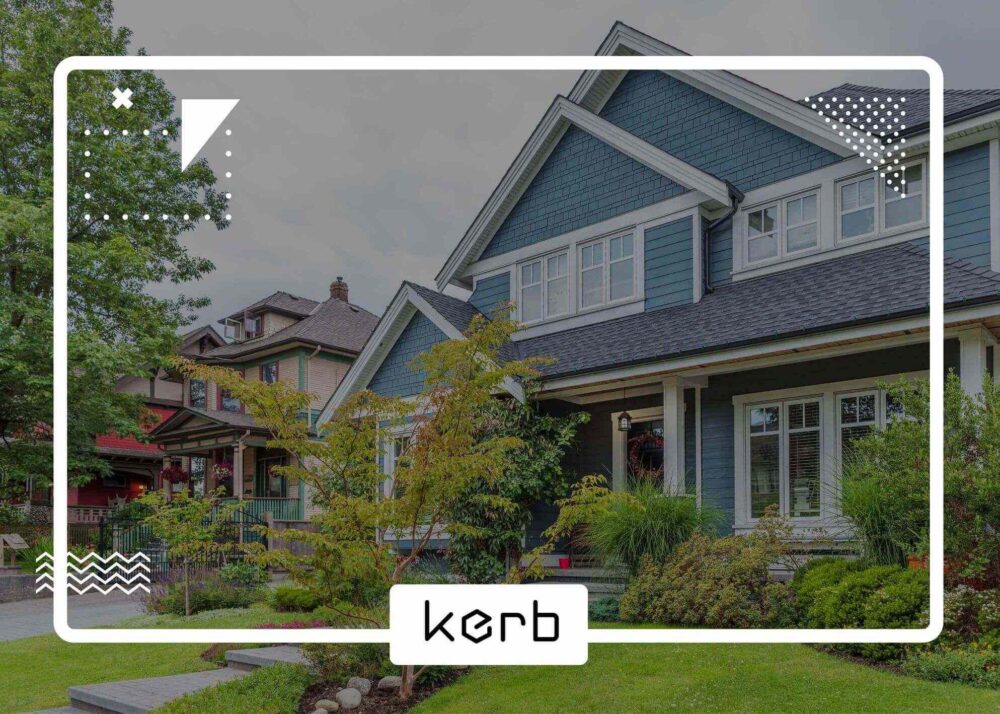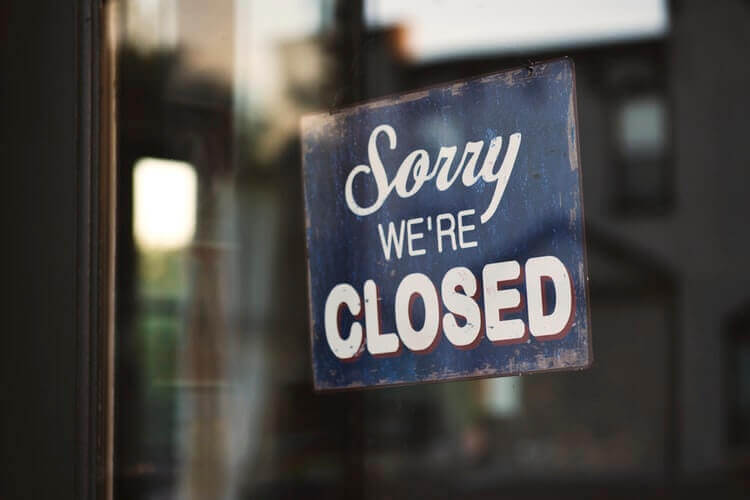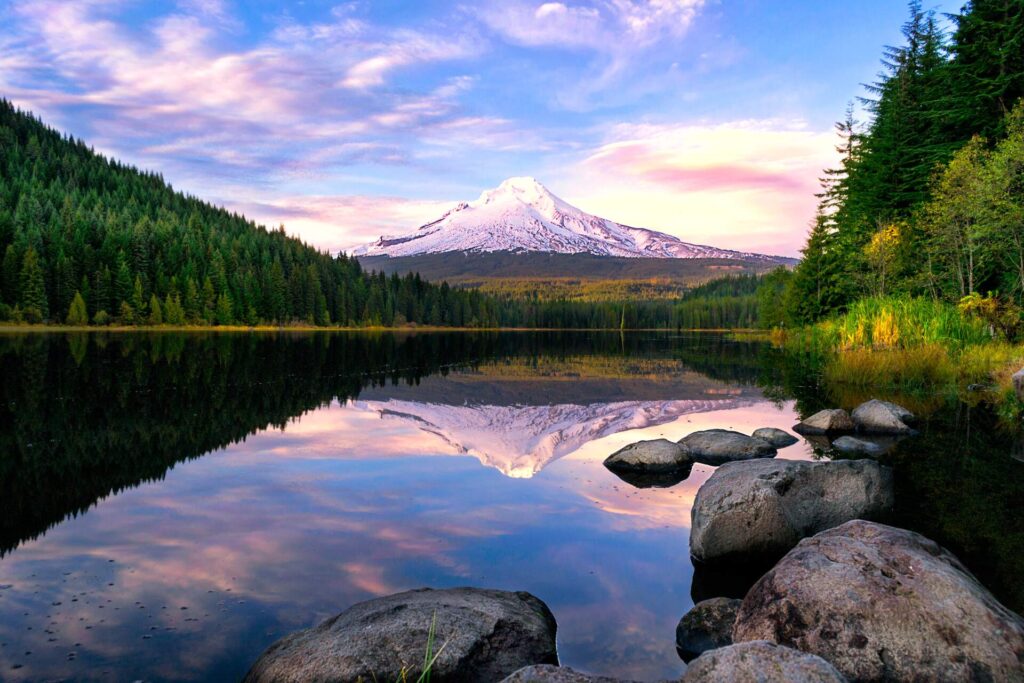Moving to a small town from large cities is not that uncommon. Every year, thousands of people decide to take this step because they crave a slower pace of life and simply want to live in a more affordable environment. Yet, such a decision might present a considerable challenge. You probably must be wondering how do people survive in a small town? If you would like to know how to live in a small town and what to expect when relocating long-distance to a smaller community, you’ve come to the right place. As someone who’s relocating from a big city, we guarantee you’ll find this article very helpful.

What Are the Pros and Cons of Living in a Small Town?
Apart from organizing the move itself, like finding the cheapest way to move out of state, gathering moving supplies, and searching for relocation tips, you may end up wondering if it is all worth it. You’re already aware of the fact that your life will change drastically. That’s why we will start this article with general examples of the pros and cons of settling in a smaller place.
- The cost of living: Real estate and grocery prices are generally lower in smaller towns, but remember that salaries tend to be lower as well. We suggest you be careful when making a moving expenses checklist and save as much money as possible to help you get started.
- Community: Smaller places tend to have close-knit communities where everyone knows each other. Moving away from friends is always challenging, but you’ll quickly meet your neighbors. Yet, since almost everyone knows everyone, there will always be a little bit of gossiping.
- Employment opportunities: Job opportunities will be significantly lower. You should research some tips on how to get a job in another state before relocating there and schedule a couple of job interviews before the move to see what your chances are.
- Amenities: Know that you won’t have many options as you did while you lived in a city. Once in a while, you’ll need some products you won’t find in a local store, and you’ll need to travel to nearby cities and get things you like. That is why you should find the cheapest way to ship a car and use it as your primary transportation mode.
- Services: Your local electrician, plumber, or carpenter might be booked for a longer time. If you need one immediately, you’ll have to wait longer for service. We highly advise that you get to know the basics of home maintenance.
- Children: Smaller towns tend to have better schools, and the environment is generally more cleaner, friendlier, and calmer. If you’re relocating with kids, know that they’ll grow up in the right place.
Now that we have covered some general advantages and disadvantages of living in a small town, let’s get into details. After reading the whole article, you’ll get a better picture and be able to decide whether moving to a small town is the right thing for you or not.

Businesses and Restaurants Close Early
One thing that might surprise you if you moved to a smaller community from a metropolitan area is that markets, restaurants, and shops tend to close early. They’ll also be closed on Sunday and sometimes even during the whole weekend or public holidays. You must be prepared to travel whenever you need some necessities during, for example, spring break. If you don’t have a problem with this, you should definitely book long-distance movers, search for some moving hacks, and relocate to your chosen location.

There Might Be Difficulties With Medical Service Access
You’ve maybe used to booking your doctor’s appointment and being checked at once. However, living in rural areas means adjusting to lengthened waiting times just for medical service. There’s also a lack of specialists. For instance, if you need to see a psychiatrist or psychologist, you’ll be left with even fewer options. It’s a high possibility that you’ll have to drive a couple of hours to be seen by the right specialist.

Everything Will Slow Down
If you’re tired of the city’s hustle and bustle and overcrowding, you’ll love the slower pace smaller towns can offer. Peaceful and quiet times are very refreshing for the body, mind, and soul. You’ll learn to appreciate and enjoy every moment, from buying groceries to drinking your coffee. Just watching the sunrise over open fields will allow you to take a break and breathe. Every moment will be slower and done more deliberately. Since it’s also less crowded, you’ll notice that people are more inclined to be friendly and say hello on the street.
You Can Look up at the Sky at Night and Enjoy the Coolest Views
Cities have a big problem with light pollution due to too much artificial light at night. Besides preventing us from seeing the alluring starry night, this has pretty bad environmental consequences for both humans and animals. Smaller towns also don’t have tall buildings and skyscrapers. That’s a significant factor in reducing light pollution and is undoubtedly better for the environment. If you opt for moving state to state, you’ll not only be living in a healthy environment but also be able to enjoy stargazing every night.

Your Main Transportation Option Will Be Your Own Vehicle
Rural towns have scarce public transportation, usually daily busses that leave once or twice during the day. Thus, you should book an auto shipping service and move your car to another state. Even though your own vehicle will be your primary mean of transportation, the situation will be completely different from bigger cities. There won’t be so many other vehicles on the road or spending hours just getting around. Fewer cars also mean less air pollution.

Job Opportunities Are Limited in Smaller Towns
Unless you’re relocating for a job, know that your employment options will be somewhat limited. A local economy is typically structured around a specific industry, and if your professional qualifications don’t suit it, you’ll encounter some challenges. Job hunt should definitely be on top of your moving to-do list. However, even if you find work out of your qualifications, be persistent because a better opportunity could quickly arise.

Where the Population Is Smaller, Friendships Are Different
As we mentioned, rural areas tend to have a strong sense of community. Not only everybody knows each other, but they also like to look after one another. This is going to be a huge change for you since life in a metropolis has probably isolated you from everyone, and you probably didn’t even have a chance to meet your first door neighbor. Here’s an entirely different situation. You’ll enjoy every new relationship! If you’re relocating for love, know that your partner’s neighbors will most likely arrive with a “welcome to our neighborhood” tray of cookies or a pie.

You’ll Be Living in a Safer Environment
Reading house hunting tips and looking for your dream home are among top priorities when relocating, but finding a safe neighborhood is probably equally, if not more, important to you. Since rural areas have smaller populations, crime rates are meager. There’s a high chance that locals and law enforcement will notice any such action. After all, it’s much easier to catch a culprit in a rural area than in bigger cities.

If You Moved to a Smaller Area, You Wouldn’t Regret Saving up Some Money in Your Pocket
The best thing about relocating from urban environments to rural or suburban towns is all that money you’ll be able to save. We briefly mentioned that pretty much everything will be cheaper than in a place you’re currently living in. Of course, your expenses will vary depending on your future location, but check the following list of things that will definitely save you some dollars.
Houses Are Cheaper (and They Come With Huge Backyards)
This is one of many reasons why it’s better to live in a small town. If you’re looking to buy a property, you’ll find a much cheaper option in suburban or rural areas than in the city. For example, NYC’s median home value is around $655,000, while in Woodstock, New York (with a population of 6,000), the average price is about $400,000. The price difference is striking, almost doubled. Should you donate furniture because you think you won’t have enough space? You’ll find a much bigger house for a more affordable price, so be sure to obtain enough packing materials for moving, learn how to pack books for relocation, and all those other things you may have planned to give away.
Besides spacious homes, smaller towns are also more likely to have a vast land or backyard plot. This precious commodity will certainly be appreciated for anyone who’s relocating with pets or kids.
The Home Tax Rate Is Lower
The total tax sum you have to pay annually can reach a pretty high number. Depending on your location, you’re probably required to pay extra taxes, like sales and property taxes. However, outside of the city’s border, property taxes are much cheaper. For example, in the 2019 property tax rate in Hialeah, Florida, a smaller place, was 0.513% while the rate in Tampa, Florida, a more urban area, was 0.742%.
You’ll Spend Less on Car Insurance and Gas
Car insurance rates will differ depending on where you live. And small-town residents usually pay much less. Let’s not forget that car theft or any other kind of vandalism is rare. Thus, towners typically pay considerably less for their vehicle insurance.
The chances of small-town congestion are little to none. You’ll save up a lot of money on gas because you won’t have to spend hours sitting in traffic. Gas prices will also be significantly lower.
Think About Opening a New Business
Since employment opportunities are limited, consider opening your own business when moving across the country. You’ll have less competition, and thus the chances of succeeding are pretty high. Building up your own business will be easier here than in large and overcrowded cities. If you need some starting ideas, click on the video below.
Is It Better to Live in a Small Town or a Big City?
The answer entirely depends on you. Hopefully, this article helped you decide if moving across the country to a small town is for you or not so that you don’t need to doubt your decision when you relocate with questions like should I move back home. There will be some challenges, but if you’re willing to change some habits in your daily routine, we guarantee you’ll adapt quickly. If you decided that small-town life is the right choice for you, be sure to search for useful tips for relocating out of state. Then you can finally organize a moving away party to celebrate your new beginning.
Let’s not forget that moving cross-country is much more comfortable with the right team of professional local or long-distance movers. That’s why if you want to avoid relocation stress, you should research “long-distance movers near me” and book the ones that offer top-rated moving services. Remember that if your relocation budget is tight, you could pack most of your belongings yourself, and call an experienced long-distance moving company to handle fragile possessions. If your move-in and move-out date don’t match, a reputable cross country moving company will offer you a clean and climate-controlled storage unit. With a professional interstate moving company, you’ll have a successful and smooth relocation to your chosen suburban or rural location.





